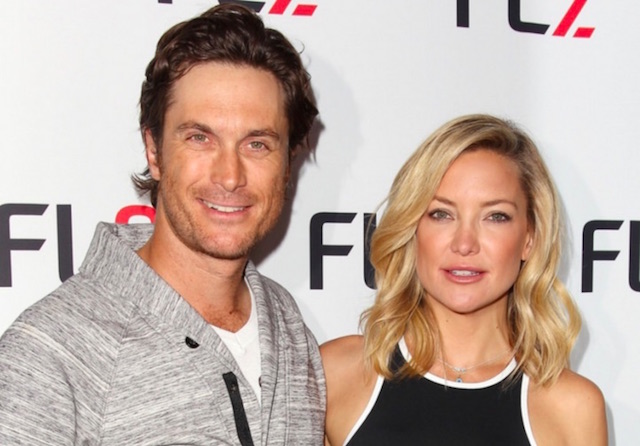This past Sunday was Father’s Day.
Along with the expected posts on social media—people sharing fond memories and appreciation for the fathers in their life—there were also a number of posts where people shared less-than-happy musings about their fathers.
While many of the posts were about fathers that were no longer alive and/or avoided calling out people by name, a few made exceptions.
Celebrity actor Oliver Hudson, who also happens to be the son of actress Goldie Hawn and singer Bill Hudson, posted a childhood photo on Instagram of himself, his father and equally-famous sister Kate Hudson with the caption “Happy Abandonment Day.”
Actor, Charlie Sheen, took to Twitter and in a long, largely incoherent rant called his ex-wife, Denise Richards, “[the] world’s worse mom” and ” an evil terrorist sack of landfill rash.” (Sheen claims his ex called him a deadbeat dad.) In a show of tremendous dignity, Richards took the high road and Tweeted back that she wished her the father of her children a “Happy Dad’s Day.”
While the media had a field day with the stories which undoubtably lead to increased traffic on celebrity gossip sites which report such things, these publicly displayed spats brought attention to a common phenomenon: a lot of people, both famous and non-famous are taking family feuds to social media.
In the past six months alone, I have observed several family battles play out on social media. Usually, these things follow a familiar formula in which someone makes a claim about a family member and various people who know one or both of the parties chose sides. While these things can and often do go on for awhile and provide a perverse sense of entertainment one thing that I have noticed is that they seldom seem to end happily, much less result in any sort of resolution.
As someone who has shared a lot of personal stuff in my writing including my complicated relationship with my parents, it would seem that I would be in favor of “getting it all out” on various social media platforms.
However, I do not.
For the most part, I believe that going to social media with familial problems tends to make things worse rather than better. Deal with it or don’t, but keep it off social media.
While some may find this hypocritical, given that I write under my own name on a public format like Elephant Journal, I do believe there is a difference.
I never actually set out to write about my family. Rather, it just evolved naturally over time.
The first time I decided to write about my childhood, I informed my parents. Neither were ever that much into the internet, so neither cared too much.
My father, who didn’t even own a computer, said, “Write what you want. I doubt my version would be the same as yours, but it’s how you chose to remember things.”
As a writer and as someone who liked to think I had integrity, I felt it was my duty to know that I chose to reveal was as important as what not to reveal.
While it feels like I have shared a lot about my life, there is actually quite a lot that I have kept private and for good reason. The main reason is that when I write about myself, there are almost always others involved. It’s one thing to put myself out there but another thing entirely to include other people.
Also, when I talk about uncomfortable things from my past, I do so primarily in the hopes that sharing my story may help others.
Calling someone out on social media is not the same thing—it’s about trying to get back at someone and shame them.
Granted, I would argue that some people do deserve to be called out and some-like deadbeat dads even deserve to be shamed—but doing so on social media is not the place to do it.
Usually, all it leads to is people taking sides. Even if that isn’t the case, more often than not, the subject feels that they are having their dirty laundry aired publicly and are far less likely to want to talk it out or even hear why the person who called them out is upset.
In the case of Hudson and Sheen, these respective celebrities have gotten a lot of attention, but it is doubtful that they have gotten any sort of resolution or in Sheen’s case, that he has learned there are far healthier ways to relate to his ex-wife.
If there is anything we can learn from these two publicly displayed examples, it’s that perhaps not everything needs to be shared with the public and if we happen to be on the receiving end, may we all take the advice of Denise Richards who Tweeted, “The less you respond to negative people, the more peaceful your life will become.”
Amen.
Author: Kimberly Lo
Editor: Ashleigh Hitchcock
Photo: flickr


 Share on bsky
Share on bsky





Read 0 comments and reply